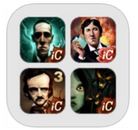Writing assessment 2017 or Post apocalypse writing.
Part one – The content of the Interim frameworks 2016 and their adverse effects.
Has the dust settled on the 2016 assessments yet? No way I hear you say. I agree with you, I continually get asked about them on social media and when I go into schools. There is much debate on Twitter and Facebook about what the writing assessments will or will not look like next year at the end of KS2. Will it look the same as this year? Will the interim framework just become the framework? I cannot imagine there will be many changes if any at all. The way writing is assessed against the framework is, anecdotally, having a negative effect on the teaching of writing in some schools, especially where the tick list method is used. Gone has the teaching of writing which focused on effect on the reader, an outpouring of the author’s creativity and feelings - to be replaced by staid pieces of writing whose main aim is to demonstrate the proficient use of complicated grammar and punctuation which is often unnecessary in quality writing. Pick up a novel – go on… get one now… open it to any page. How many exclamation marks, colons or semi colons does it have? I am guessing in many cases that they are rarely used and if they are used at all then they have been inserted sparingly. This week I heard via Twitter of a child in Y2 being assessed as below expectations because she had only used exclamations in two of her moderated pieces of writing and thus didn’t demonstrate sufficient secure use. (Surely if the two were used correctly this demonstrates a secure understanding?) The sad thing is that I can’t see anything being done about this at a governmental level any time soon. However, as teachers we can still focus on creating opportunities for our children to create writing which is creative and imaginative, which looks at the effect on the audience, develops vocabulary use and choice etc. Whilst teaching grammar in context as part of the writing journey, which can then be used by the children as and when necessary. This needs to be done, as it says in the National Curriculum, through the teaching of reading, writing and speaking and not as a separate bolt on. If this is done from year 1 onward, at a level appropriate for our pupils then we should see the effect in future years. Part two – Flaws in the assessment process. Recently many people have been expressing their displeasure in the moderation process, that they have been forced to produce tick lists and endless evidence for moderation whereas other schools have had quite a positive experience. Other schools didn’t have to experience it at all and we’ll just have to trust their results, with some teachers worried that they have been too generous or too harsh. A friend of mine believes (and I am swayed this way too) if one school is moderated then they all should be. This would certainly seem fairer although it would come at great expense. **Typing from my Anderson shelter** It may be much simpler to return to the writing tests. Not quite as they were before but still a one off test which would allow children to show off their writing skills. I would personally go for a ‘cold’ write narrative which had an interesting and engaging prompt and a non-fiction ‘hot’ write. How would that work? Firstly, we would need a sea-change in what we (teachers) think the assessments are for. At the moment I feel that many teachers think assessments are a way of students proving how good they are, showing off their very best work which is why it is produced over a period of time with a number of rewrites. Is this really the purpose of the year 6 writing assessments though? Not really, the purpose is to level/rank children against their peers and use these levels/ranks ultimately to rank their schools against those in the LEA and nationally. Not many pupils are going to produce their best piece of writing under test conditions, not many of us would. But what the tests would give is a standardised piece of work which can be easily ranked and compared across the country. So what would these new tests look like? They would be four hours long. Two hours for non-fiction and two hours for narrative. Narrative Give children an engaging stimulus, an image or a short film and ask children to write a narrative piece based upon this. It maybe that if they are watching a film extract they could write a conversational piece, they could be asked to write a description of setting, character or both. They could be asked to write an ending for a short film or a piece of action. It would be short and not a whole narrative. Children should be used to this type of writing as it is standard fare in most schools. The two hours would allow for 30 mins thinking/planning time if needed followed by an extended writing session of 90 minutes which would allow some children time to edit and redraft sections. Non-Fiction (Disclaimer) This is just an idea that I think could possibly work. Two/three weeks prior to the test date teachers can download a 2/3 week basic unit plan on a topic with key focus points, key information and key vocabulary. This, for example, could be Volcanoes, Castles etc. The teachers then have 2/3 weeks to teach content and vocabulary whilst revising text types and applying them to the topic. On the day of the test the task is revealed. Something like non-chronological report, recount of visit to… etc The children at this point should have the content knowledge and also knowledge of text types in order to ‘succeed.’ Although in a perfect world none of this would happen, we would just teach our pupils how to write creatively, passionately and accurately without the need for testing. As always I welcome your comments. Rob
15 Comments
I like to use films with an emotional story line with children. It often leads to deep and mature discussion, allowing the teacher to draw out emotive vocabulary from the children who are then inspired to write using this language whilst including the emotional content in their writing. I was thinking about the films that had an effect on me as I was growing up. I was born in 1982 and I still love watching children's films today, so I thought I would compile a list of the 6 saddest moments in Children's films. (I have 6 as I couldn't narrow any further to a 'top' 5) I tried not to include 6 death scenes in the list, although this is often the saddest point of any film. Some of the obvious ones are not in there - Bambi's mother for example, but I have never seen that film (or Starwars!) I would also like to feature 'Land Before Time' - When Lightfoot's mother dies and the death of Mufasa in 'Lion King' but again more death scenes, so they only get a notable mention.
Up (2009)
The Hunchback of Notre Dame (1996)
Toy Story 2 (2000)
Monsters Inc (2002)
How to Train Your Dragon 2 (2014)
I watched this film with my 6 year old and we were both in tears when Stoick died, I have just asked Noah what the saddest part of any film he has seen is. He said when "Dumbledore dies or when Stoick dies." When I asked him why this was sad, he said "because Stoick was the leader so more people are sad." But "also he is killed by 'Toothless' - Hiccup's best friend so it makes it even worse for Hiccup." I think he puts it rather well! I would be happy to hear your comments about the list. Maybe you agree with the tear ratings or maybe you would like to add your own scene to the list, please do so using the comments below.
A quick video of me exploring the Warhorse Interactive App. It has a mass of information on there. Start with the illustrated novel. Then you could open the timeline and read about key events including maps, images, audio and videos. There are also interviews with historians on the battle sites. You can then see an excerpt of the novel read by the author himself.  I recently came across these great interactive story books on the app store, like all great finds, whilst I was looking for something else. The iClassic bundle contains 12 interactive tales from four of the world's greatest authors: H.P. Lovecraft, Edgar Alan Poe, Charles Dickens and Oscar Wilde. The Lovecraft stories are probably more suitable for students in secondary school (age 11+) The Poe and Dickens stories are suitable for students in UKS2 (ages 9+) but it will be a good idea to read them before sharing with your class. The Oscar Wilde texts are suitable for children from around Year 3 (7+) Lovecraft titles - The Hound, The Window and Dagon - there is also a brief biography of the author.
Poe titles - Eldorado, The Cask of Amontadillo, Alone, The Facts in the case of M. Valdemar.
Dickens Titles - Christmas Ghosts, The Ivy Green, A Madman's Manuscript and a brief biography.
Wilde titles - The Selfish Giant, The Happy Prince, The Nightingale and the Rose plus a biography.
Happy reading! |
Archives
July 2020
Categories
All
|

 RSS Feed
RSS Feed
